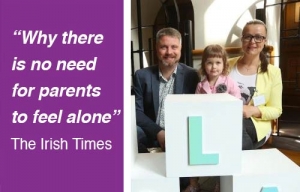“The most important influences on children’s
early development are those that come from home”
Dame Clare Tickell (2011)
The evidence confirms that compromised parenting is a highly significant child development risk factor, but that parents can learn new parenting techniques, and insights into how children develop and learn can affect how people parent. The evidence also shows that good parenting can reduce the effects of other factors with the potential to negatively impact on child outcomes.
Attachment and relationships
Good quality relationships and secure attachment enable a growing brain to become socially efficient, so providing a basis for future self-control and cognitive development. From the baby’s point of view their environment consists of relationships with his or her parents or carers. The quality of this environment influences the development of the brain and social behaviours in ways that form a foundation for the child’s future experiences. Secure relationships have effects on all development whether it is cognitive, language or other learning.
Stress
Research shows that strong, frequent or prolonged activation of the body’s stress management system can produce structural and physiological changes to the infant’s functioning that can impact on both their social and emotional development and later capacity for language and learning (NSCDC, 2014). For example, prolonged exposure to stressful experiences can result in higher cortisol levels which can change the architecture of regions in the brain that are essential for learning and memory.
Social and emotional development
A child’s emotional brain is largely created during their first 18 months. For very young children, a secure relationship (i.e. parenting that is sensitive and responsive to the baby’s signals and cues) promotes emotional health – often referred to as positive infant mental health – and has a direct effect on later emotional, social and physical health, both in childhood and longer term.
Language and communication skills
The development of language and other communication skills are also important features of social development as the development of speech and language is determined by how much a child is spoken and read to. Studies have shown that up to 50% of four-year-olds living in deprived areas may have speech, language and communication learning needs. Children with poor communication skills have lower educational attainment levels.
Evidence suggests that young or first-time mothers in particular do not know or understand the three key contributors to positive infant speech and language development important to cognitive ability and later educational outcomes
- parent-child interaction
- child-directed speech, and
- book sharing
One third of children with speech and language difficulties develop mental health problems and studies have shown that 70% of young offenders have significant communication problems.
Cognitive skills
The first year is critical for cognitive development (the development of thinking) a process that involves perception, memory, problem solving, reasoning, analysis and concept formation.
Physical growth
The synapse formation for vision peaks at 3 months and is completed by 2 years; for hearing the auditory map is formed by 12 months. During the first year an infant’s brain is acutely vulnerable to trauma but is also the peak age for abuse and neglect.

